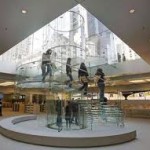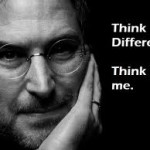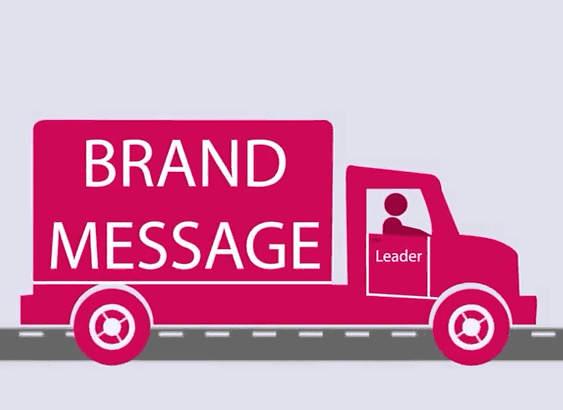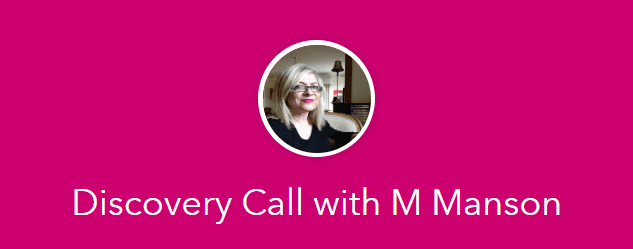Leaders know that Culture is not a ‘fuzzy’, nice-to-have exercise for the HR or PR department, but the real muscle of a differentiating, high-performance organisation. Properly managed, it ensures business longevity, market attractiveness and profitability. Enlighted leaders view and treat Culture as a business Process. And, as a Process, Culture, especially Innovation Culture, can be developed, implemented, influenced, and changed – over time.
Establishing a group culture is a natural social tendency for humans. Culture connects and bonds people in good and bad ways. Every organisation naturally develops its own informal culture. The difference between successful, profitable companies, and the rest, lies in what behaviours are broadly adopted and whether these behaviours are purposefully shaped to encourage specific outcomes and well being of the employees, and, of the business, as a result.
Consider this: the world famous Cafe Greco in Rome, est ca 1760 as an early outpost of coffee culture, still operating today attracting new breed of clients; Starbucks’ culture linking employees with customers around a coffee ritual – as opposed to the omnipresent, American-style, McDonald’s-to-roadside-diner-filter-coffee ; and, on the other hand corporate culture like Apple or Virgin Airlines. Wikipedia has a woeful definition of ‘Coffee culture’ – ignore it! But it gets one thing right: coffee culture is a series of social behaviours.
Interesting to note is that these ‘coffee culture’ behaviours are adopted by choice, voluntarily, or sometimes under peer pressure. And, there is always an associated ritual: special stop on the way to work, slight self-imposed inconvenience just to get coffee from that particular place, naturally in a takeaway cup, or meeting people in a quirky little cafe instead of your well appointed meeting rooms. And, of course, there is the associated creative activity: laptop, writing, or reading to charge up the mind and get inspired. It’s the ritual people choose as individuals but it always has some added meaning and purpose. Coffee culture has evolved in our society to more as an alternative work routine than recreation.
The High Voltage Connection: Business and Culture
Back to business. Companies that have made an effort to project certain culture tend to demonstrate it visually. The big end of town uses the magnitude of design to send a message about ‘who we are’: lofty foyers, latest trends in workspace layout, marbled or musical staircases, conference facilities with five star catering to make corporate guests feel loved and welcome, alternative working and meeting spaces – modeled on Google and some creative agencies’ concepts.
But few organisations have a chance to make their business culture be as ubiquitously visible as Apple does: from product design, to launches, advertising, store design, service design, staff training. Everything supports the philosophy of the holy union Product and Customer Experience Design, in the minutest, last detail. Designing an amazing customer experience is a Non-Negotiable Principle that makes every employee and every aspect of the operation accountable for that outcome.
Your Business Culture Checklist
For a behaviour to be viewed as Culture it needs to meet certain criteria:
- An identifiable group of people shares consistent behaviours.
- It is driven and sustained by highly visible, trend-setting, influencing leaders.
- The group is aspirational, i.e. there is always a fresh supply of new members wanting to be invited.
- The group grows by covert Word-Of-Mouth: pull rather than push.
- New members can easily see the acceptable behaviours and code before entering.
- New members are quickly taught, by example, of what are the acceptable behaviours.
- Group has rituals that regularly bring members together and allow them to share the experience.
- Group has Symbols that identify them, e.g. clothing, badges, titles, tools, accessories, language.
- Members aspire to contribute to the group’s experience by active participation.
- The most powerful reason to belong is the Status of belonging which is rarely monetary.
In addition, there are two extra criteria to define your organisation’s culture as a desirable Business Process:
11. The direction is set by the shared, inspiring company’s Vision.
12. Leaders must act as catalyst – start the reaction and get out of the way.
Culture is not a one-off acquisition. Culture is a Process that relies on procedures and tools. The Process starts with a consistently and repeatedly communicated Shared Vision and training People in using essential tools to help them solve problems and think differently. These solutions result in new Customer Value or Business Value. Often both.
While building a culture that is capable of consistently delivering innovative outcomes that create business value, is not an overnight transformation and may cause some discomfort within the organisation. The good news is that it is a transformation and doesn’t have to be an highly expensive or disruptive. You probably already have the knowledge of what it takes and some of the ingredients. Tip: it all starts with your Customer-Focused-Vision.
Can a culture like this be developed in your company? There are some great companies around, so if you already have culture ‘happening’ or some great plans for it, please Contact InnoFuture for an opportunity to showcase it.
Margaret Manson | Chief Inspirator | InnoFuture
 InnoFuture helps organisations achieve higher Productivity through establishing a culture of learning ad innovation to guide and inspire people in their daily jobs. In the ever changing world of business models InnoFuture remains unbiased because there is no one-fits-all-business-model or silver bullet tool you can give to your people out of context. Instead, we continually explore and curate emerging concepts, tools and expertise; and connect business innovators with the resources they need to get results. If you want to get started or deepen your organisation’s innovation capacity through innovative culture then we can help.
InnoFuture helps organisations achieve higher Productivity through establishing a culture of learning ad innovation to guide and inspire people in their daily jobs. In the ever changing world of business models InnoFuture remains unbiased because there is no one-fits-all-business-model or silver bullet tool you can give to your people out of context. Instead, we continually explore and curate emerging concepts, tools and expertise; and connect business innovators with the resources they need to get results. If you want to get started or deepen your organisation’s innovation capacity through innovative culture then we can help.
Contact: Margaret Manson or 0407 661 130.
DISCOVER InnoFuture DOJO – Strategic training, coaching System that enables for Small to Medium businesses imbed culture of continuous innovation into their daily operations, in every job.










